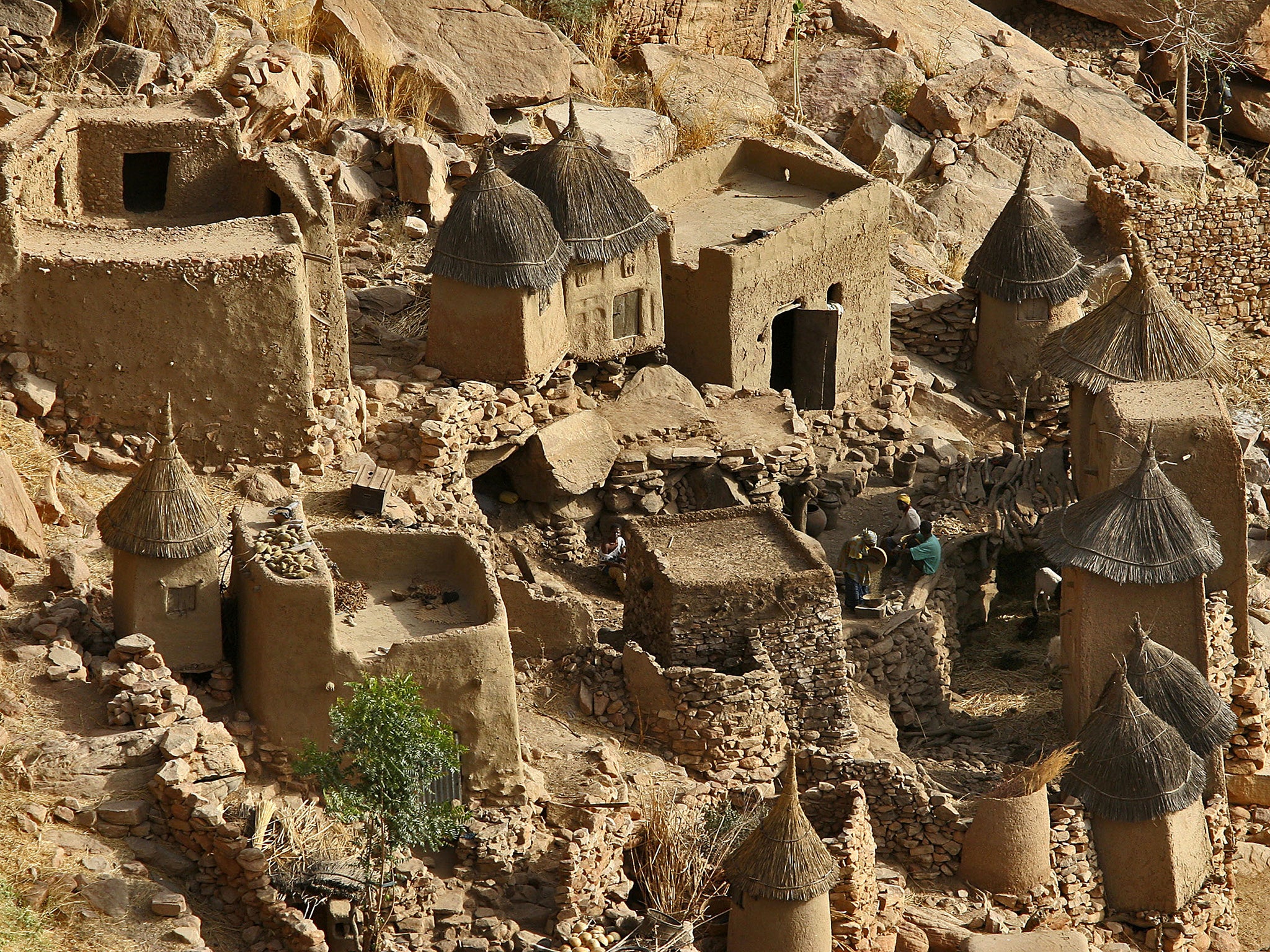Mali: Nearly 100 killed in attack on village
'Carnage' also left homes burned and animals killed, government says

Your support helps us to tell the story
From reproductive rights to climate change to Big Tech, The Independent is on the ground when the story is developing. Whether it's investigating the financials of Elon Musk's pro-Trump PAC or producing our latest documentary, 'The A Word', which shines a light on the American women fighting for reproductive rights, we know how important it is to parse out the facts from the messaging.
At such a critical moment in US history, we need reporters on the ground. Your donation allows us to keep sending journalists to speak to both sides of the story.
The Independent is trusted by Americans across the entire political spectrum. And unlike many other quality news outlets, we choose not to lock Americans out of our reporting and analysis with paywalls. We believe quality journalism should be available to everyone, paid for by those who can afford it.
Your support makes all the difference.Nearly 100 people have been killed in an overnight attack on a village in central Mali.
Attackers believed to be from the Fulani ethnic group raided a rival Dogon village early on Monday morning, officials said.
The raid took place in the Sangha district, where Fulanis from the neighbouring Bankass district descended on the Dogon village, Bankass mayor Moulaye Guindo said.
“Armed men, apparently Fulani, fired at the population and burnt the village,” said Siriam Kanoute, an official for the nearby town of Bandiagara.
Sangha mayor Ali Dolo said 95 charred bodies had been found so far, but the death toll was likely to rise as the village was still ablaze. “On a population of around 300 inhabitants, only 50 responded to the roll call,” said Mr Dolo.
Fighting between Dogon hunters and Fulani herders has killed hundreds since January, including an attack on a village in March in which over 150 Fulanis were killed by gunmen.
The latest attackers are suspected “terrorists,” Mali’s government said in a statement. “This carnage” also left homes burned and animals killed, the statement said. Security reinforcements were deployed to track the perpetrators, it added.
The violence has compounded an already dire security situation in the West African nation’s semi-arid and desert regions, which are used as a base by jihadist groups with ties to al-Qaeda and Isis.
These groups have exploited ethnic rivalries in Mali and its neighbours Burkina Faso and Niger in recent years to boost recruitment and extend their influence over vast swathes of territory.
The Malian government is seen as having lost its grip over parts of the country, having outsourced the fight against jihadists to vigilante groups with scores to settle.
The Dogon suspect the Fulani of harbouring Islamist militants, charges the Fulani deny.
French forces intervened in Mali, a former French colony, in 2013 to push back a jihadist advance from the north, but the militants have since regrouped.
Mali’s government must address the arming of ethnic self-defence groups and the proliferation of arms in central Mali or “there is a high risk of further escalation that could lead to the commission of atrocity crimes,” the United Nations secretary-general said in his latest report on Mali last month.
The unrest in central Mali has displaced some 60,000 people, secretary-general Antonio Guterres wrote, adding that he was “appalled” by the surge in violence and its effect on civilians.
Additional reporting by agencies
Join our commenting forum
Join thought-provoking conversations, follow other Independent readers and see their replies
Comments